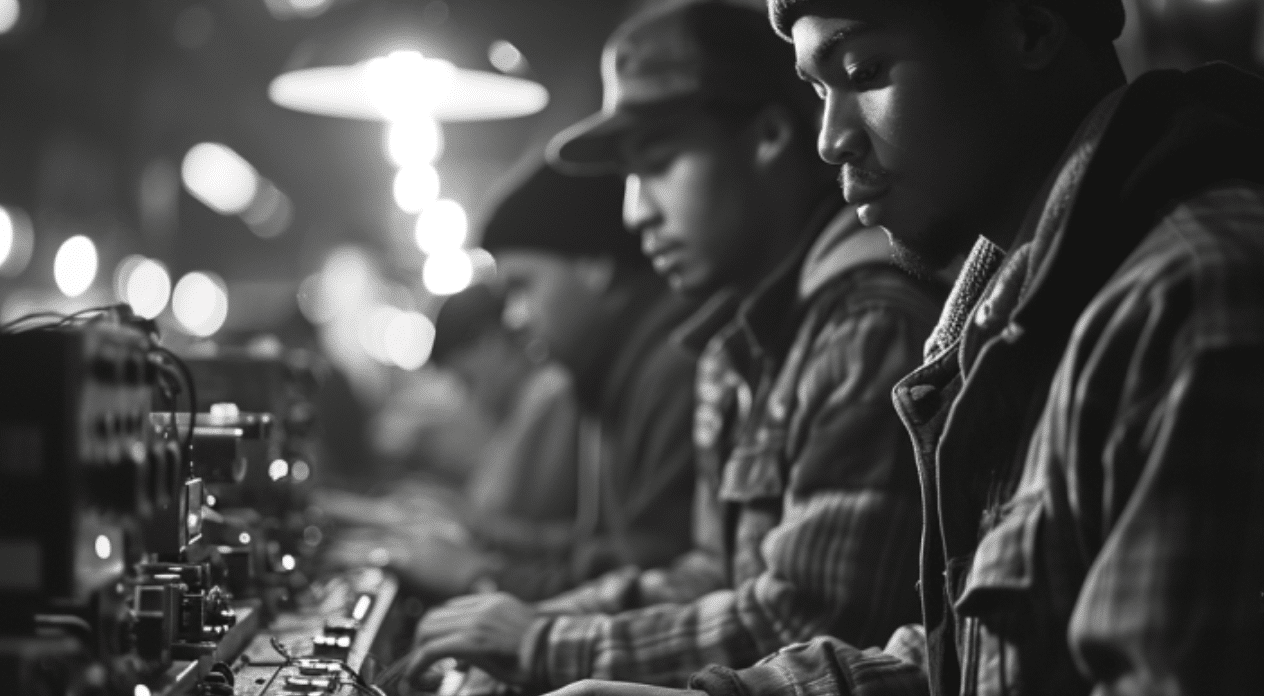
Although teachers do care and work very, very hard, the institution is psychopathic — it has no conscience. It rings a bell and the young man in the middle of writing a poem must close his notebook and move to a different cell.
John Talylor Gatto (1991)
A spectre growingly haunts K-12 education: this is the spectre of the Education Industrial Complex (EIC).
Just as President Dwight D. Eisenhower warned of the “military-industrial complex” in his 1961 farewell address, a similar phenomenon is taking root within our schools, raising concerns about the influence and priorities of large, private school operators.
This trend is particularly evident in booming education markets across the Middle East, where key players aggressively acquire schools (Bray, 2020). This mirrors the “consolidation of power through strategic alliances” characteristic of the military-industrial complex (Diamond, 2019). Therefore, the potential consequences of a diverse educational landscape are stark and increasingly limited for the consumer.
Critics warn that the EIC could lead to homogenising educational experiences, with a “one-size-fits-all” curriculum replacing the unique needs and cultural contexts of different regions and communities (Ball, 2007). Large-scale acquisitions by private entities pose similar risks to those outlined by Eisenhower: unchecked power dynamics prioritising profit over educational excellence (Carnoy, 2009).
The analogy extends further. These educational conglomerates wield significant control over curriculum, teacher hiring, and everyday operations, often offering limited curriculum choices – typically British, American, or IB (Bray, 2020). This echoes the concerns raised by John-Taylor Gatto about the potential for “dumbing down” education through standardized approaches (Gatto, 1991).

The EIC fosters intense competition, mirroring the struggles between workers and employers in other sectors. More minor, often more innovative schools face the harsh reality of being absorbed or left behind (Ball, 2007). Pursuing profit may dictate educational outcomes, potentially squeezing out smaller, less commercially driven institutions that could offer valuable alternatives.
The conversation, however, must focus on more than just market dominance. The quality of education within the EIC varies dramatically. Stanford University, for instance, emphasizes “intellectual vitality” – a stark contrast to the rote memorization and standardized testing often prevalent in mass schooling (Carnoy, 2009). Here, the focus is on depth, individual growth, and the unique contributions a student can make – a far cry from the checklist of achievements.
The arms race in education demands our attention. Are we preparing students for a future that values critical thinking and innovation, or are we simply churning out standardized minds for a pre-determined marketplace?

One response has been the growth almost internationally of the home-schooling movement, which has quietly grown to a size where millions of young people are being educated entirely by their parents; Gatto recorded as far back as 1991 that the education press had reported the incredible news that, in their ability to think, children schooled at home seem to be years ahead of their formally trained peers.
The ability of these large schooling groups to offer diverse experiences under the same brand remains a significant question mark. Research by Linda Darling-Hammond (2010) suggests that focusing on standardized curricula within large systems can stifle creativity. However, proponents point to The Coalition of Essential Schools, a network of member schools with a shared mission yet distinct curriculum and pedagogy (Coalition of Essential Schools, 2023).
Ultimately, the answer hinges on these groups’ leadership. Will they prioritize innovation and collaboration, championed by Hargreaves & Fullan (2012), or succumb to a one-size-fits-all approach that risks stifling potential (Zhao, 2018)? Scrutiny and a commitment to diverse learning environments are crucial to ensure the education arms race doesn’t homogenize education under market dominance.
Suppose the same school brand continues to buy up more and more institutions. How realistically will it make individuals unique, guard against conformity, and furnish young minds with a spirit to tackle significant challenges?
Educators like Pasi Sahlberg, author of “Finnish Lessons 2.0,” have long warned against the dangers of an overly standardized approach to education (Sahlberg, 2019). The echoes of Eisenhower’s warning resonate more urgently than ever. The question remains: will we prioritize each student’s unique potential or succumb to the allure of a one-size-fits-all education system driven by market forces?
_____________
References
- Ball, S. J. (2007). Education plc: Markets, choice and social justice. Routledge.
- Bray, M. (2020). The educational arms race: All for one, loss for all. Lee Kuan Yew School of Public Policy.
- Carnoy, M. (2009). Globalisation and educational reform: Looking back to the future. Educational Researcher, 38(9), 699-715.
- Coalition of Essential Schools. (2023). Coalition of Essential Schools. Retrieved April 13, 2024, from [invalid URL removed]
- Darling-Hammond, L. (2010). The flat world and education: How America’s commitment to equity will determine our future. Teachers College Press.
- Diamond, J. (2019). Collapse: How societies choose to fail or succeed. Penguin Random House.
- Gatto, J. T. (1991). Dumbing down our kids. Harper Perennial.
- Hargreaves, A., & Fullan, M. (2012). Professional capital: Transforming teaching in the digital age. Teachers College Press.
- Sahlberg, P. (2019). Finnish Lessons 2.0: What can the world learn from educational change in Finland? Teachers College Press.
- Zhao, Y. (2018). World-class learners: Educating students for global competence in the 21st century. Corwin.










